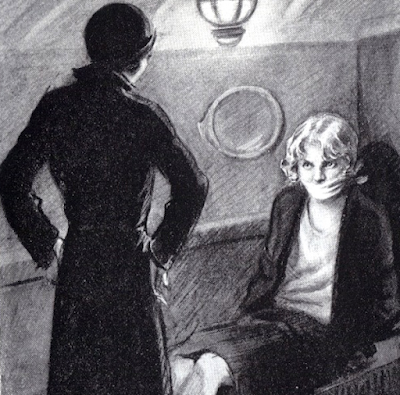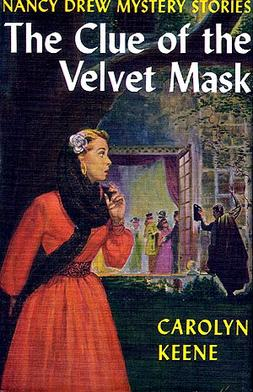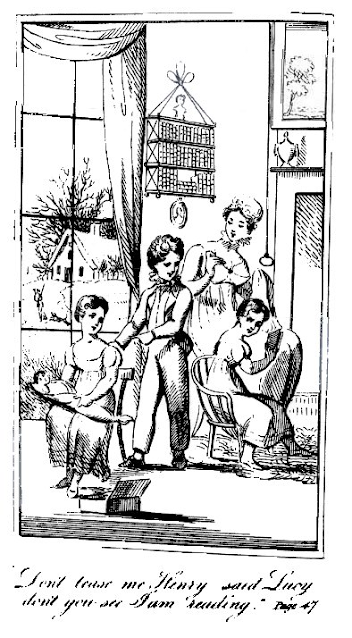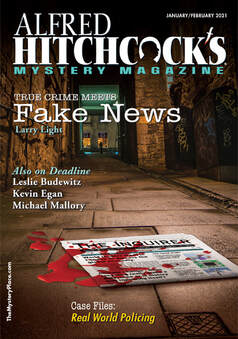Personal request: If you cite this list (and I would be happy if you do) please refer to it as "Robert Lopresti’s ‘Best of the Year’ list at
SleuthSayers,” not as the SleuthSayers' 'Best of the Year' list. It's just me bloviating here, not the whole gang. Thanks.
It is time for the thirteenth annual list of the year's best mystery stories as determined by yours truly. It goes without saying that the verdicts are subjective, personal, and entirely correct.
Sixteen stories made the list, one fewer than last year. Ten stories were by men, six by women. The big winner was Alfred Hitchcock's Mystery Magazine with five stories. Ellery Queen's Mystery Magazine had four. Two more came from the Mystery Writers of America anthology.
Four of the stories were by my fellow SleuthSayers, a talented bunch. With no further ado, here is the hit parade:
Allyn, Doug. "Hit and Run," in Ellery Queen Mystery Magazine, November/December 2021.
This is Allyn's third appearance in my best-of
list.
Imagine
you are stuck in traffic on your way to an important, even
life-and-death meeting. Now imagine you get rear-ended by a woman who is
not paying attention. But
the frosting on the cake is that the accident makes your trunk fly
open, revealing the bag of cocaine you are bringing to the meeting.
Many twists and turns...
Aymar, E.A. "The Search for Eric Garcia," in Midnight Hour, a Chilling Anthology of Crime Fiction From 20 Authors of Color, edited by Abby L. Vandiver, Crooked Lane Books, 2021The
protagonist's life is going down the tubes. His daughter died in an
accident that he feels responsible for, although the authorities
disagreed. His wife is living with Eric Garcia, who owns the
store where our hero works. Eric is everything he is not: a confident,
successful man. And our protagonist feels that the world isn't big
enough to hold both of them. This is a very clever story, one
where the telling is essential to the plot.
Benn, James R., "Glass," in Alfred Hitchcock's Mystery Magazine, September/October 2021.A superconducting super-collider goes boom and a piece of 21st-century
technology is blasted back through time to 1965 where it is discovered
by hapless recently-fired salesman Guy Tupper. Guy brings it to his
cousin Jerry who runs a repair shop. Together they figure out just
enough to get the device working, and then... One plot twist made me gasp out loud.
 Cummins, Robert. "The Phone Message," in Ellery Queen Mystery Magazine, March/April 2021.
Cummins, Robert. "The Phone Message," in Ellery Queen Mystery Magazine, March/April 2021.
This is the author's first story. The beginning may remind you of Columbo. In the first scene Carole Donaldson calmly kills her husband. Later, and just as calmly, she tells the police officer leading the investigation that she had tons of motive. But she also seems to have an unbreakable alibi...
Fisher, Eve. "The Sweet Life," in Alfred Hitchcock's Mystery Magazine, July/August 2021. Eve Fisher is, of course, my fellow SleuthSayer.
Eve Fisher is, of course, my fellow SleuthSayer.
Carrie
is a teenager who has had a rotten life. She considers her time with
Ethan to have been a highlight because, while he made her sell drugs, he
didn't force her into prostitution. When
that arrangement collapses she lucks into a gig with an agency that
cleans houses. She likes the work, even though some of the customers
are a little weird. But then someone from her previous life threatens to ruin everything.
Goffman, Barb, "A Family Matter," Alfred Hitchcock Mystery Magazine, January/February 2021. Barb is another fellow SleuthSayer.
It is 1962 and Doris lives in a very nice suburb called The Glen. Most of her friends are married to men who work for the big pharmaceutical corporation in town. The neighborhood has standards.
And the new neighbors do not meet them. They raise chickens and hang laundry in their yard. Doris is determined that these offensive violations of community norms will not be permitted. But when she realizes a very different norm is being broken she has to determine what really matters in the neighborhood.
Harrington, Karen. "Boo Radley College Prep," in Ellery Queen's Mystery Magazine, January/February 2021.
Tony
is fifteen years old, short on luck and, he will tell you, short on
brains. A hurricane has forced him and his mother to move in with the
brother of his deceased father, and it isn't a happy or healthy home.
Right down the block, however, is what his uncle calls "the Boo Radley house," a spooky-looking joint whose owner never appears in public. Curiosity - and the hopes of earning chore money - causes Tony to visit. He meets a grouchy old man with a lot of brains and good reasons to hide. Can these desperate souls help each other?
Haynes, Dana. "The Waiting Game," in Alfred Hitchcock's Mystery Magazine, July/August 2021.
This
is my first encounter with Fiero and Finnigan who run St. Nicholas
Salvage & Wrecking, which is actually a bounty hunter firm that
chases international bad guys. Finnigan has been kidnapped by very
nasty
Russians who want Fiero to revert to her old occupation of assassin. A
cunning plan, but neither of the partners intend to play by the rules. I
was reminded of that classic TV show The Avengers.
Helms, Richard, "Capes and Masks," Mystery Weekly Magazine, June 2021.This is Helms's second appearance in my annual best-of-list.
"You
know the story. Stolen by aliens who crashed my fourth birthday party.
Returned when I was seventeen, but I was somehow... different than when
I left. Well, duh, I was thirteen years older, had all this weird
hair growing where it never had, and my voice sounded like I was shaving
a cat with a cheese greater."
If that sounds a bit...
hardboiled... for a superhero story it is no accident. He is Captain Courageous but his cover identity is
Eddie Shane, private eye. He mostly deals with divorce work but when a
caped dude named Sunburst is found mysteriously dead, this is no job for
a superhero. We need a gumshoe to save the day.
Jacobs, Tilia Klebenov , "Perfect Strangers,", in When A Stranger Comes To Town, edited by Michael Koryta, Hanover Square Press, 2021.
Gershom
is finishing his second prison term for armed robbery when his cellmate
Dougal points out the new gold mine: marijuana dispensaries. Cash-rich
and security-poor, they are a robber's dream. So when he gets out
Gershom begins to plan an elaborate robbery, because he does not intend
to go down a third time: "If this went sideways, they'd lock me up and
melt down the warden."
Lansdale, Joe R. "The Skull Collector," in Collectibles, edited by Lawrence Block, LB Productions, 2021.
He was a tough old guy, Ruby said. Big, could crack
walnuts with harsh language, chase a squirrel up a tree with bad breath.
She had to use an axe handle to sort the guy out a little. It wasn't
too bad. He was able to leave on his own, though not without a certain
amount of pain and difficulty...
That tells you a lot
about Ruby, sure, but we also find out a lot about the narrator,
especially that "It wasn't too bad." What does she consider a real problem? How about having to steal a skull from a cemetery?
Light, Larry. "The Trouble with Rebecca," in Alfred Hitchcock's Mystery Magazine, November/December 2021.Max
is a "tech geek," working for a company that does hush-hush security
stuff. Because he hates the social side of work he invents Rebecca, a
non-existent wife. This imaginary person is his excuse to avoid
after-work events and the like.
Works great until he falls in love with a co-worker. How do you rid yourself of a wife who does not actually exist?
Thielman, Mark. "Catch and Release," in The Fish That Got Away, edited by Linda M. Rodriquez, Wildside Press, 2021.
This is the third appearance in this column by my fellow SleuthSayer.
I let a murderer go today. That's
how the tale begins. You might feel that the prosecutor is being a
little hard on himself, because he did try his best to get Thomas
Edmonds convicted. (Didn't he?)
He walks you through the trial,
through every maddening moment that caused his case to slip away. And
through it all Edmonds sits there, as cool as a bystander at a
church picnic. No wonder the narrator is so upset. But then unexpected
things happen...
Walker, Joseph S. "Crown Jewel," in Moonlight and Misadventure, edited by Judy Penz Sheluk, Superior Shores Press, 2021. The publisher sent me a copy of this book.
Keenan Beech is a compulsive collector of vinyl, and his golden fleece is The Beatles,
better known as the White Album. The first few million copies
have a number stamped on the cover and collectors like Keenan keep
buying, buying, buying them, trying to get closer to the elusive lower
numbers.
But his big problem is his identical twin Xavier. Keenan is a hard working guy;
Xavier is an unsuccessful scoundrel. And when a record store offers
Keenan a rare copy of the White Album for a mere five grand Xavier
somehow gets his hands on it first by, duh, pretending to be Keenan.
Witt, Amanda, "Relative Stranger," in When A Stranger Comes To Town, edited by Michael Koryta, Hanover Square Press, 2021.Glory
Crockett lives on a farm and one day a stranger knocks on the door.
What's disturbing is that he resembles her husband, Owen. Turns out his
name is also Owen Crockett. He's the bad-news cousin who has spent
most of his life in prison, "a one-man crime spree." Now here he is,
with a glib charm that rings completely false. And somewhere outside
is Glory's husband and four young sons...
Zelvin, Elizabeth. "Who Stole the Afikomen?" in Ellery Queen Mystery Magazine, March/April 2021.
My
fellow SleuthSayer has written a hilarious story. Andy is a Catholic
and he is about to meet his new fiance's extended family at their
Passover dinner - his first experience at a seder.
Uncle Manny kept saying, "Focus, people, focus. We've got a goal here."
"To get the Jews out of Egypt?" I whispered.
"To get past the rabbis to the gefilte fish," Sharon whispered back.
"Is that the Promised Land?"
"The pot roast is the Promised Land."

























